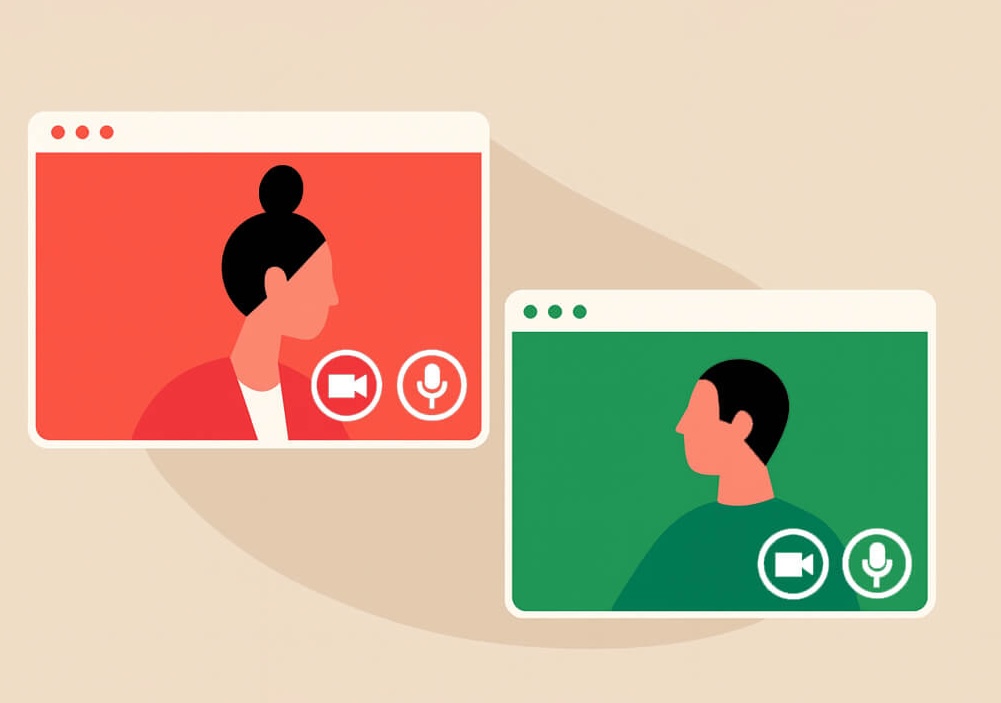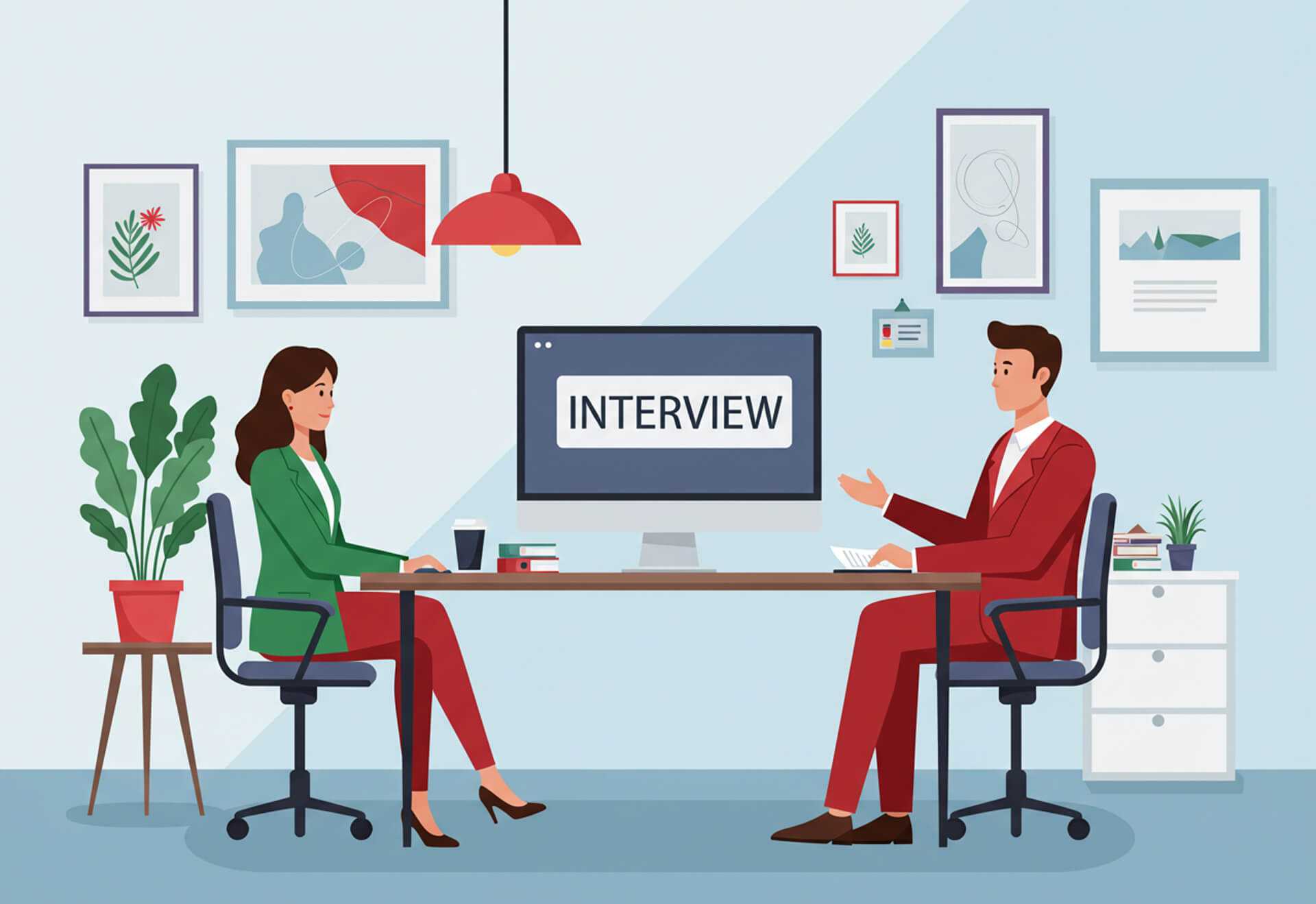Today, interviews look different from what they did even five years ago. Phone calls are still common, video interviews are now standard, and yes, artificial intelligence may be the first “person” you talk to. The good news is that with the right approach, you can master the interview process and walk in with confidence. This guide will give you the best interview tips for every stage, including phone and video interviews, what to bring to an in-person interview, how to prepare for AI screenings, and the mistakes to avoid.
Think of this as your friendly, slightly sarcastic but always supportive recruiter’s playbook. Let’s dive in.
Why the Interview Stage is More Than Just a Formality
It is tempting to see an interview as just a box to check in the hiring process. After all, if they invited you, they already like your resume, right? Not so fast. The interview stage is where hiring decisions are really made.
For recruiters and hiring managers, interviews are a chance to test if the resume matches reality. Do you sound confident when you talk about your work? Can you explain your achievements clearly? Do you seem like someone who will fit into the team culture without causing chaos at every Monday meeting?
For you, the candidate, the interview is equally important. This is your chance to test the company. Do they treat candidates with respect? Do they seem excited about the role? Are they asking questions that make sense, or are you secretly wondering how on earth these people run a business?
Think of it like a first date, except instead of choosing the restaurant, they are holding the paycheck. Both sides are evaluating. That is why preparation and presence matter.
Phone Interviews: Making Your Voice Do the Heavy Lifting
Phone interviews are often the very first step in the hiring process (once your resume has gotten your foot in the door). They are quick, convenient, and give employers an easy way to screen candidates. For you, it can feel harder than in-person meetings because you have no body language to rely on. Your voice does all the work. Preparation for a phone interview is not rocket science, but it is easy to overlook the basics.
- Find a quiet spot where barking dogs and clattering dishes will not sabotage you.
- Charge your phone fully. Few things are more awkward than your battery dying mid-sentence about your “excellent time management skills.”
- Keep a copy of your resume in front of you, along with a few bullet points of key achievements.
- Use notes without sounding like you are reading. Bullet points keep you grounded, but if you start reciting a script, the recruiter will know.
Dos and Don'ts for Phone Interview Success
-
 Smile when you talk. It may sound silly, but smiling changes your tone. You will sound warmer and more enthusiastic.
Smile when you talk. It may sound silly, but smiling changes your tone. You will sound warmer and more enthusiastic.
-
 Stand or walk around. Many people find their energy improves when they are not slumped in a chair.
Stand or walk around. Many people find their energy improves when they are not slumped in a chair.
-
 Have water nearby. A dry throat makes you sound tired and disinterested.
Have water nearby. A dry throat makes you sound tired and disinterested.
-
 Pause often. It is easy to talk over someone on the phone, so give space for the interviewer to respond.
Pause often. It is easy to talk over someone on the phone, so give space for the interviewer to respond.
-
 Monotone voice. Sounding bored is the fastest way to get rejected.
Monotone voice. Sounding bored is the fastest way to get rejected.
-
 Noisy background. Even if you are the most brilliant candidate, no one wants to fight with your blender.
Noisy background. Even if you are the most brilliant candidate, no one wants to fight with your blender.
 Over-reliance on notes. If you sound like a robot, you might as well send them an AI transcript.
Over-reliance on notes. If you sound like a robot, you might as well send them an AI transcript.
Zoom & Video Interviews: Mastering the Virtual

Welcome to the world of video interviews, where you must pretend your messy living room is a professional conference room. Love them or hate them, video interviews are convenient for both job seekers and recruiters and are here to stay.
Your environment says a lot before you even speak. Choose a clean, neutral background. If that is not possible, use a virtual one, but make sure it does not glitch so you look like you are missing half a shoulder. Check your lighting - sitting in the dark makes you look like you are testifying in a crime documentary. Natural light from the front (sit facing the window) is best. And finally, camera height matters; eye level is ideal. Nobody wants to spend 30 minutes looking up your nose.
Tech prep:
- Update Zoom (or whichever platform is used) before the interview.
- Test your internet connection. Have a Plan B, like a hotspot.
- Practice logging in a few minutes early so you are not fumbling at the last second.
Non-Verbal Cues in Video Interviews
In a video interview, body language matters just as much as the words coming out of your mouth. Instead of staring at your own reflection, train yourself to look directly into the camera - it feels odd, but it creates the impression of genuine eye contact and helps you connect with the interviewer. Combine this with small gestures like smiling and nodding at the right moments to show that you are actively listening and engaged in the conversation. Finally, remember to sit up straight, because good posture communicates confidence and professionalism, even when you are speaking through a Wi-Fi connection in your living room. Adding a little intentional energy to your movements can make you appear more dynamic and memorable on screen.
In-Person Interviews: Old-School but Still Gold
Despite all the technology, the classic in-person interview remains powerful. Some companies still use it as the final round to see how you interact face-to-face.
What to Bring to an Interview
✅ Multiple printed copies of your resume - technology fails, so be ready.
✅ A notebook and pen - shows preparedness and lets you jot down key points.
✅ Portfolio or work samples. If relevant to your field, bring them.
✅ ID - some offices require a security check-in.
What Not to Bring to an Interview
It is equally important to know what not to bring. These small missteps can distract from your professionalism.
❌ A beverage: Walking in with a coffee cup may seem casual, but it can backfire. Drinks can spill or create awkward juggling moments during handshakes. Stay hydrated before, and save the latte for after. If you are offered a beverage during the interview, it is okay to accept, but I recommend asking for water instead of anything hot.
❌ Headphones or AirPods: Take them out before you walk in. Nothing says “I wasn’t ready to be here” like removing earbuds mid-greeting.
❌ Strong scents: Cologne or perfume should be minimal. Overpowering fragrances are distracting and sometimes can even become allergy triggers for interviewers.
❌ Distracting accessories: Big jangly jewelry, noisy keychains, or clothing with slogans can pull attention away from your words or send a wrong message. A clean, professional, and distraction-free look is your safest bet.
❌ Food or gum: Chewing during an interview is a definite no. Even if you’re nervous and need a mint, finish it before stepping into the room.
❌ Overloaded bags: Carrying three totes, a backpack, and a grocery bag makes you look disorganized. Bring only what you need: a resume folder, a notebook, and maybe a slim briefcase or professional bag.
❌ Casual attitude in clothing: Yes, dress codes are evolving, but shorts, flip-flops, or wrinkled clothes signal a lack of effort. Even startups that pride themselves on being casual appreciate when candidates look polished for an interview. Leave your graphic tee for the casual Friday once you get that job offer!
In-Person Interview Etiquette
In-person interview etiquette might feel old-fashioned, but it still matters. Handshakes are still common, yet a polite nod or warm smile is perfectly fine if you or the interviewer prefers it. Arriving on time is critical - not too early, and definitely not late, with ten minutes before the scheduled slot being the sweet spot. Dressing the part is equally important, and while you don’t want to overdress or look underprepared, business casual is usually a safe choice if you are unsure. Finally, do not underestimate the power of small talk; simple topics like the weather, the commute, or a light comment about the office atmosphere can build rapport and set a friendly tone for the conversation.
AI Interviewers: Yes, Robots Are in the Room Too
One of the most interesting trends in hiring today is the rise of AI-powered interviews. Companies like HireVue use AI to screen candidates with video or voice questions, analyzing tone, facial expressions, and keywords. What are AI-powered interviews? - Instead of talking to a recruiter, you record responses to preset questions. The AI then evaluates your answers based on patterns, tone, and sometimes even facial expressions. Here's how to prepare for an AI interview:
- Practice recording yourself answering common interview questions.
- Speak clearly and avoid filler words.
- Keep answers structured and concise. STAR (Situation, Task, Action, Result) works well. Or consider exploring other behavioral interview techniques like PAR or SOAR.
Why AI Interview Prep Matters for Humans Too
Even if you are interviewing with a human, practicing for AI interviews makes you sharper. You will eliminate “ums,” stay concise, and get used to expressing your value clearly. Plus, AI is not going away. Better to get comfortable with it now.
Top 10 Mistakes to Avoid in Any Interview

Interviews are nerve-wracking, and nerves often lead to little blunders. Some mistakes are forgivable, but others can cost you the offer. Here’s a deeper look at the ten most common ones — with context, examples, and advice on how to fix them.
❌ Showing up late
Nothing screams “unreliable” like arriving late. Even if you have the best excuse in the world (traffic jam, Wi-Fi collapse, asteroid strike), lateness makes a bad impression. Try arriving 10 minutes early for in-person interviews or log in 2-3 minutes before a video call. If you know you’re running behind, email or call the recruiter immediately - communication can soften the damage.
❌ Dressing inappropriately
Your outfit tells a story before you speak. Showing up in jeans when everyone else is in blazers says you didn’t do your homework. On the flip side, wearing a tuxedo to a casual startup chat is overkill. Research the company dress culture. When in doubt, lean slightly more formal than casual. A polished appearance never hurts.
❌ Rambling without direction
We’ve all been there — halfway through explaining a past project, and suddenly you’re three tangents deep talking about your high school part-time job. Rambling signals that you’re not prepared or cannot organize thoughts under pressure. Use the STAR method (Situation, Task, Action, Result) to keep answers structured and to the point. Practice a few common questions so your answers are crisp.
❌ Not researching the company
Few things disappoint an interviewer faster than a candidate asking, “So what does your company do?” Basic research is expected. At the very least, review their website, mission statement, and recent news. Even better, mention something you found exciting — like a recent product launch or an initiative in the news. It shows effort and genuine interest.
❌ Badmouthing past employers
Talking badly about former bosses or the company reflects poorly on you, not them. Even if you had an absolutely terrible experience, try being diplomatic about it. Instead of, “My manager was totally incompetent,” say, “The environment wasn’t the best fit for my growth, which is why I’m excited about this opportunity.” Stay classy.
❌ Not preparing questions
When the interviewer asks, “Do you have any questions for me?” the wrong answer is, “Nope, I think you covered it.”
This is your chance to show curiosity and initiative. Prepare 3-5 thoughtful questions in advance. Avoid asking practical questions about salary or vacation policies. Focus on culture, expectations, and career growth. Good examples are:
- “What does success look like in this role during the first six months?”
- “What are some of the challenges the team is currently facing?”
- “How does the company support professional development?”
These show that you are thinking beyond the paycheck and are genuinely interested in the role. Keep in mind that many candidates are reading the same advice and the same articles, so if you are interested in something else not covered by these questions, ask away. As long as it signals your genuine interest in the company, feel free to ask those!
❌ Sounding too rehearsed
Preparation is great, but over-preparation can backfire. If your answers sound memorized, you lose authenticity. Interviewers want to see how you think, not how well you can memorize and recite. Strike a balance: practice your stories, but deliver them conversationally. Think of it as telling a friend about your work, not reading a speech.
❌ Ignoring body language
Slouching, crossing your arms, or avoiding eye contact can say “I’m not interested” even when your words say the opposite. In video interviews, remember to nod and smile. In person, use open body language, sit tall, and make eye contact. Non-verbal cues are powerful - often more powerful than words.
❌ Forgetting to follow up
Sending a thank-you email within a day is no longer optional. It doesn’t need to be long - three or four sentences will do. Thank them for their time, highlight one thing you enjoyed discussing, and reaffirm your interest. It takes a few minutes but leaves a lasting impression. The interview is not over when you walk out or click “Leave Meeting.” Following up is part of the process.
- Send a thank-you email within 24 hours.
- Mention something specific from the conversation to personalize it.
- Keep it short (three sentences is the sweet spot), kind, and professional.
- Do not overdo it. One thoughtful email is enough.
❌ Overusing AI-prepared answers
AI tools are wonderful for practice, but interviewers can tell when answers are overly polished or robotic. If you sound like ChatGPT wrote your response, you will lose credibility. Use AI to brainstorm or structure, but inject your own stories and personality. Authenticity is the name of the game.
The Future of Interviews: Tech, Trends, and Human Touch
Looking ahead, interviews will continue to evolve. AI will become more common, virtual reality may play a role, and hybrid approaches will become standard. But one thing will not change: authenticity. Employers still want to know who you are, how you think, and whether you will thrive in their culture.
The best interview tips for the future are the same as today. Prepare, practice, and be yourself. Technology may filter resumes and score answers, but people still make the final decisions. At the end of the day, the best interviews feel less like interrogations and more like conversations. If you can prepare, stay calm, and approach the interview as a dialogue instead of a test, you will stand out.
So breathe. Your resume got you the interview, and now you have the tools to succeed. With these career interview tips, you are ready to tackle phone calls, Zoom meetings, AI robots, and in-person handshakes like a pro.
